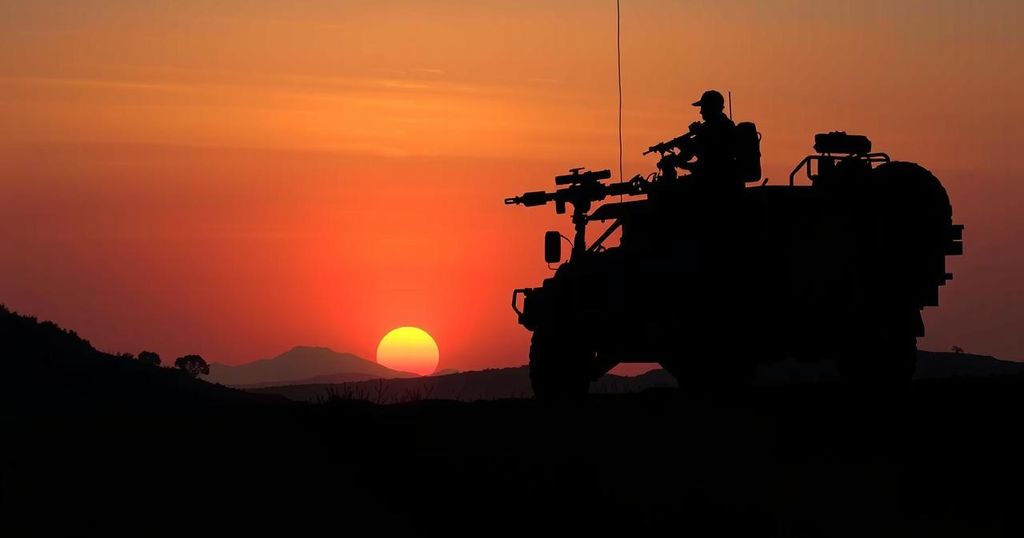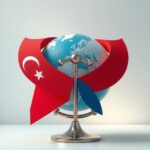Politics
AFRICA, ALA, ALASSANE OUATTARA, ASIA, BASSIROU DIOUMAYE FAYE, BURKINA FASO, CHAD, CHINA, COTE D ' IVOIRE, COUP, DJIBOUTI, EUROPE, EUROPE/ASIA, EXTREMIST GROUPS, FAYE, FRANCE, GABON, IVORY COAST, MALI, MILITARY, MOROCCO, NIGER, OUATTARA, PORT BOUET, REGIONAL COOPERATION, RUSSIA, SAHEL, SECURITY, SENEGAL, WEST AFRICA
Nia Simpson
Ivory Coast to Withdraw French Troops, Marking a Shift in West Africa’s Military Dynamics
Ivory Coast has declared the withdrawal of French troops, reflecting modernization of its military. President Ouattara announced this decision following Senegal’s similar move. The shift comes as France reduces its military presence in West Africa amidst growing anti-French sentiment and rise of alternative partnerships. Ivory Coast’s historical and economic context further underscores the significance of this change.
Ivory Coast has officially announced the withdrawal of French troops from its territory, signaling a decrease in the military influence of France, the former colonial power. President Alassane Ouattara, during his end-of-year address, indicated that this decision reflects the modernization of the Ivorian armed forces. This withdrawal aligns with Senegal’s recent announcement regarding the closing of French military bases by the end of 2025, where approximately 600 French military personnel are stationed in Ivory Coast alongside 350 in Senegal.
In his statement, President Ouattara declared, “We have decided in a concerted manner to withdraw French forces from the Ivory Coast,” noting the transfer of the military battalion at Port Bouét that is currently operated by the French army to Ivorian control. This decision follows France’s withdrawal from Mali, Burkina Faso, and Niger amidst rising anti-French sentiment and military instability in the region, resulting from recent coups.
Additionally, President Bassirou Dioumaye Faye of Senegal directed his military minister to propose a new defense cooperation strategy, terminating all foreign military presences by 2025. Elected on a platform promising enhanced sovereignty, President Faye aims to reduce Senegal’s dependence on foreign powers. Meanwhile, France will maintain a limited military presence in Gabon.
The geopolitical landscape has shifted, as military leaders in Niger, Mali, and Burkina Faso have developed closer ties with Russia following the expulsion of French forces. Russia has reportedly sent mercenaries to assist these nations in combating jihadist threats. Presently, France’s troop levels in Djibouti and Gabon have dwindled to fewer than 2,000 personnel.
In recent decades, Ivory Coast enjoyed a reputation for stability and economic prosperity, being the largest cocoa bean exporter globally. However, the country experienced significant upheaval following a civil conflict in 2002, which fractured national unity. Despite ongoing challenges, citizens in Ivory Coast benefit from a relatively high standard of living compared to neighboring nations.
The withdrawal of French troops from West Africa is part of a larger trend of shrinking French military presence on the continent, following decades of colonial influence. Following a series of coups and rising anti-French sentiment in countries like Mali, Burkina Faso, and Niger, France has altered its military commitments, emphasizing the need for local forces to take charge. Amidst this geopolitical backdrop, the modernization of national armies in former colonies is becoming increasingly important for achieving stability.
The announcement of French troop withdrawal from Ivory Coast reflects a significant shift in military strategy within West Africa, as nations pursue greater sovereignty from colonial powers. The move is indicative of a regional trend of reducing foreign military presence, particularly as relations with other nations, such as Russia, strengthen in the wake of French exits due to internal political changes and security concerns. Ultimately, this marks a pivotal moment in the evolution of military and diplomatic ties in the region.
Original Source: www.bbc.com








Post Comment